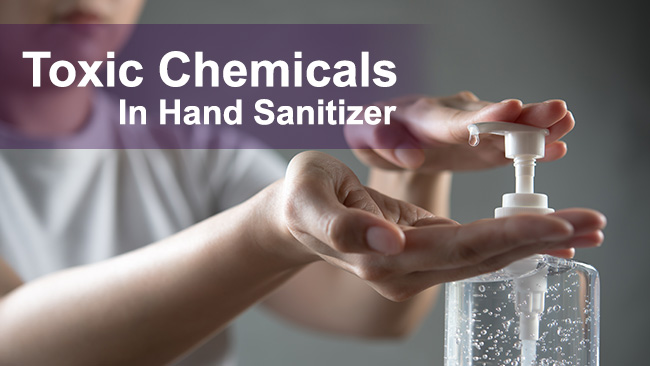Click "Allow Cookies" to consent to storing cookies on your device to improve your experience on our site. Learn more.
Volatile Organic Compounds found in Hand Sanitizer


August 10th, 2022
As Covid-19 raged through the globe the demand for cleaning supplies, such as hand sanitizer, has reached unprecedented levels. The sharp increase and urgent need for hand sanitizer has made it extremely difficult for pre-pandemic suppliers to fulfill the market demand. This opened the market for low quality hand sanitizers that have high levels of dangerous chemical contaminants such as Volatile Organic Compounds (VOCs) including high levels of methanol and benzene.
An effective and safe to use hand sanitizer may contain isopropyl alcohol, hydrogen peroxide and glycerol. In some cases ethanol can substitute isopropyl alcohol, however, no other alcohols should be part of its components. Components that should not be included are methanol, 1-propanol or benzene due to their toxicity.
Chronic exposure to some of these chemicals, particularly benzene which is known to be highly toxic and classified by NIOSH as a carcinogen, may result in serious health consequences such as cancer and central nerve system depressions. Exposure to benzene metabolites such as benzene oxide and benzoquinone also pose similar health risks as they are classified as cancer causing agents even at trace amounts.
Testing for these low level hazardous chemicals can be very challenging without reliable, accurate, and high quality Certified Reference Materials (CRMs). AccuStandard offers a wide array of CRMs that support testing for trace alcohols, benzene and many other VOCs to ensure consumer products are safe and free from such chemicals.
Can’t find it on our catalog? Contact techservice@accustandard.com and we will customize a CRM that’s tailored to your specific needs.
- Bettenhausen, C. (2021). Finding benzene everywhere we look. Chemical & Engineering News, 24–26. https://doi.org/10.47287/cen-10001-feature2
- Kumar Pal, V., Lee, S., Naidu, M., Lee, C., & Kannan, K. (2022). Occurrence of and dermal exposure to benzene, toluene and styrene found in hand sanitizers from the United States. Environment International, 107449. https://doi.org/10.1016/j.envint.2022.107449
